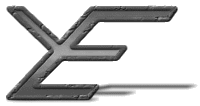This site, Web Content Management, CMS and Collaboration, along with Co-operative authoring and collaboration over the World Wide Web (YEdit) was looking at future possible developments of the Web related to document management software and systems. One of the reasons that Berners-Lee created the Web in 1989 was for collaboration on and about content and collaborative design. As the Web has limited collaboration and document / content management although CMS and document management systems have been expanding in the last few years. At present this site looks specifically at co-operative authoring (the actual creation and editing of web pages), content management (CMS, the managing and looking after of those pages), document management (the managing and controlling of particular documents), and generally at the collaboration surrounding this authoring. The goal of this site was to create an engine that was capable of supporting co-operative authoring, CMS and collaboration over the Web, which had been achieved. In addition the engine was flexible enough to allow the future development of other access methods to the CMS, especially those that are web related, such as WebDAV, WAP, etc.
This CMS engine, that had been demonstrated here was unfortunatly stolen, along with backups, early in 2003. The only good part to what happened was that I still had the documents that were on this web site and all the information regarding that engine, along with the research that went into it. That is now the basis for the information on web content management, CMS and document collaboration that you can read about here.
I hope that you will find a lot of good and useful information in this website and although most of the web pages are about collaborative web content management, CMS and collaboration software, there are some notable pages about subjects other than knowledge management software, such as web themes.
YEdit was a (CMS) system that was created in order to solve the problem of easily editing web sites, while keeping the history of the site (to preserve and document the changes that have been made), and to ensure that the integrity of the site remains high (by having a record of all the changes, who made them, and when).
Combined with access controls both for accessing a page to edit, as well as controls on who can read it, provides a wide range of security, all of which are backed up by the full history of the page.
The range of access controls for editing goes from only allowing one verified person to edit a page, through to pages that are editable by the general public. The same range of controls exist for reading a page, ranging from private pages that only one person can access, through to pages that the general public can access.
YEdit, which was once name "Co-operative authoring and group collaboration over the World Wide Web" was looking at the future development of the Web. It was one of the reasons that Berners-Lee created the Web in 1989 ; but this side of Internet was not as developed as it could have been.
So, what... ?
Groups collaborating over the Web using CMS is useful for many things, including working with others on a shared documents, sharing the responsibility for a web site, or just to have somewhere to take notes, regardless of where you or anyone else happen to be (at work, at home, or on the other side of the world).
Combine that with the ability to work with anyone, anywhere (including wireless :-), at any time. One person may be New Zealand, you may be in America, and a friend might be in England or France, talk about working (or playing) around the clock (or in this case the world).
| Previous: | Contents |
| Next: | Business collaboration over the Web |
